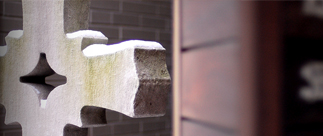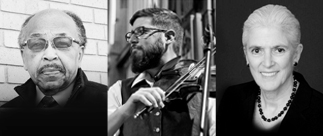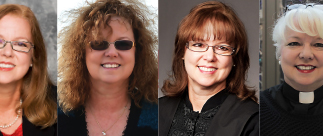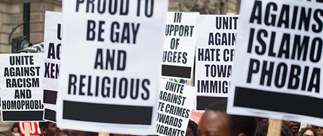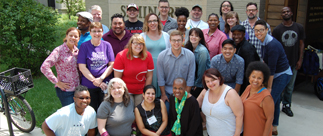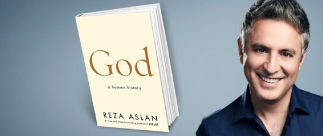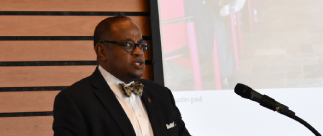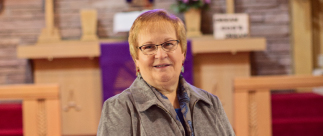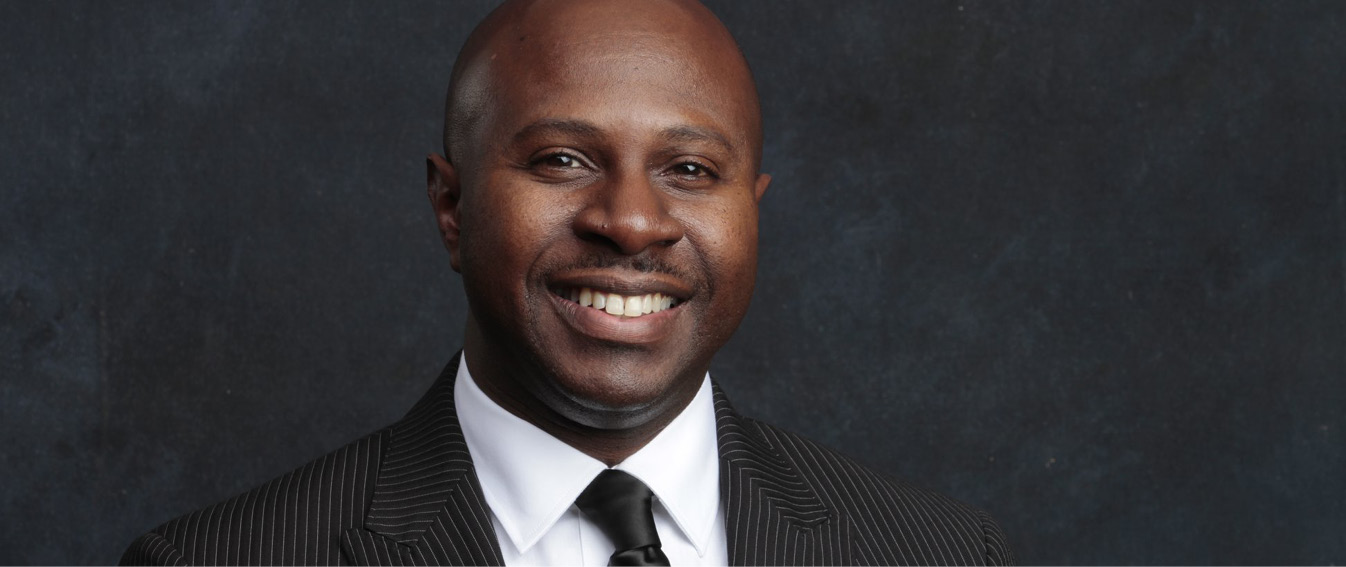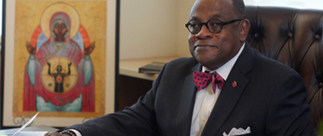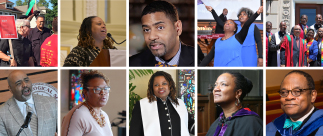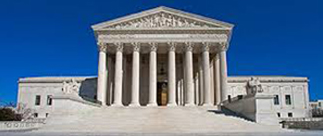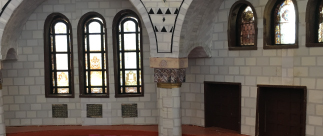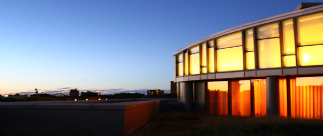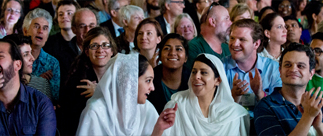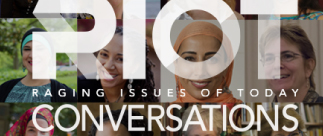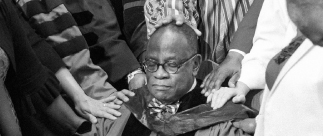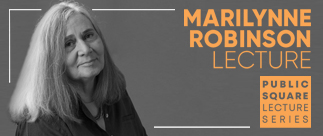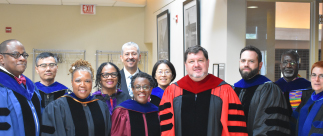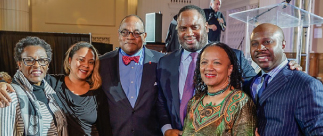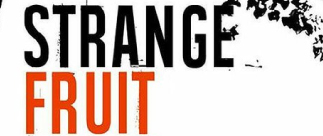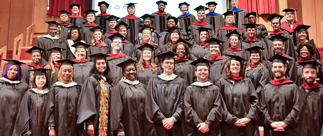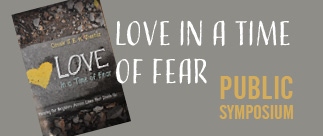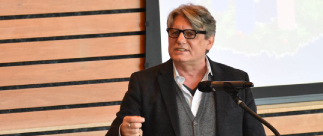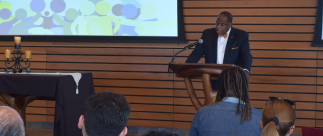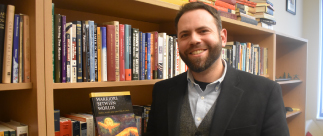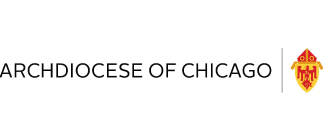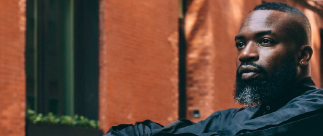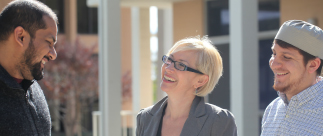CTS enters into an academic partnership with Bayan Islamic Graduate School
Story by Kim Schultz, Coordinator of Creative Initiatives for the InterReligious Institute
I spoke with Jihad Turk, the president of Bayan Islamic Graduate School, on a sultry late evening in Morocco, except unfortunately only one of us was in Morocco. Dr. Turk was on the on the edge of the Sahara Desert, on the edge of a signal, on a very late Sunday evening. He was vacationing with his family, when he took time out to speak with me. He spoke of the beauty around him, rich with colors, music, and texture.
“I am enriched by this new culture.” he said, “I believe we come to know ourselves better by comparing our own culture with other cultures and perspectives in the world. Exposure like this provides an opportunity for self-reflection and mutual understanding.” This idea seems to echo the journey our two institutions are embarking on together.
Bayan Islamic Graduate School and Chicago Theological Seminary have entered into an academic partnership that is the first of its kind here in Chicago. Bayan and CTS students will be able to take each other’s courses and learn from each other’s faculty, allowing for a depth of knowledge not possible if each school stayed siloed within their own traditions. This cross-pollination has a real opportunity to influence how we train religious leaders for the decades to come, how we, in fact, create our Leaders for the Next.
But maybe you’re still asking why a Christian theology seminary and Islamic graduate school are partnering like this?

President Jihad Turk, Bayan Islamic Graduate School.
As President Turk suggests, it’s about the world. Scholar of Religious Studies at Harvard, Diana Eck said, “To be religious in the 21st century is to be interreligious.”
Indeed. The real world we live in requires religious leaders to be comfortable crossing boundaries of religion and perspective, race, and ethnicity. It is to be fluent in multiple religions and belief systems, with enough cross-cultural comfort to do good in this world so desperately in need of it. The beauty is that this exploration of all the colors, music, and textures in the world can widen and deepen our own beliefs.
But back to the desert.
Under what I can only assume were brilliant stars, Turk told me how grateful he was to be in conversation with President Ray these past months.
“We are most excited to be in partnership with an institution like CTS who wants to more fully realize their mission that will allow all our students to be better prepared to engage in the real world in which they live, to give the opportunity for the next generation of religious leaders to be truly interreligious.”
Dr. Stephen Ray, president of CTS, agrees. “This partnership was really an unexpected gift from the universe. A blessing that came in the form of a call from a beloved CTS alumna, Sana Syed. She came to me with very excited with the news that Bayan was seeking a new home. While I did not, then, know much about the school, her excitement became mine. She helped me to see how such a partnership brings us closer to our interreligious commitments. It allows our students to take substantive courses in another religious tradition, in a way that is more than simply exploration but is very much connected with the development of leadership.”
Both leaders also spoke of the significance of CTS’s location for Muslim students in particular. Ray believes that the location gives students an opportunity to connect and explore in what is the largest Muslim community in the western hemisphere here in the upper Midwest. Turk shared that CTS’s Hyde Park location was a prominent factor in the decision.
“CTS is an institution located in a historically significant community in Chicago for both African American Muslims and the immigrant Muslim community,” Turk says. “We’re looking forward to connecting to issues right there in that neighborhood, partnering with other organizations already on the ground doing work.”
He speaks about the role of religion in civil rights, how historically the black church, in particular, has been a leader for social justice and civil rights efforts. “We look to benefit from being within the Christian communities in regards to social justice work. There is so much opportunity on the South Side. In fact, I believe Chicago is a microcosm, representative of what we face as a nation. CTS represents an understanding of American religion in a way that is embracing of an American Muslim community’s participation in what it means to be American.”
He believes CTS is on the cutting edge of a kind of engagement that reclaims the role of religion to be a force for peacemaking in the world. “This is how Bayan views Islam and religion in general,” Turk says, “and so to be partnered with CTS means to be in partnership with an institution that takes seriously the power of religion and the moral responsibility that comes with that to be a powerful force for humanity.”

Aisha Subhan, Bayan student
Returning Bayan student Aisha Subhan agrees. I spoke with her from Palestine, where she will continue her unique online, hybrid studies before she joins us at CTS for the fall intensive week. “The immersion with CTS makes my education much deeper. We all want to invoke the divine in our daily lives. So we have that in common. And it’s so important to stick together and learn from each other. It’s so important… these days especially.”
Bayan will offer four online hybrid intensive classes this fall, two of them incorporating a one-week intensive on campus with some of the best scholars available. Bayan’s hybrid structure allows them to borrow faculty from elite institutions curating a dreamy talent pool of leading Muslim academics. Courses this year include studying the collective teachings of Koranic passages, Islamic leadership, facilitating Islamic life cycles/rituals, and intra-faith studies focusing on Sunni/Shia relations. All classes will be open to all students creating exceptional opportunities to dig deep in Islam to better prepare for the diverse world in which we live.
“We look forward to having our students benefit from the perspective and insight and scholarship from the incredible faculty at CTS, as well,” Turk offers. “And also being in classrooms with Christian students and students of other faiths will really force our students to consider perspectives that they might not otherwise consider if they were isolated in just a Muslim setting.”
I am sure President Turk must be getting tired. It is after all well past midnight for him. So I end with asking him what he would say to someone skeptical about a Christian Seminary partnering with an Islamic School. When I had asked Dr. Ray the same question, he said that it is possible and necessary to stand in the integrity of one’s own tradition while understanding the critical need for others. I wondered what President Turk would say.
“I would emphasize that the perceived difference between us is what is often used to divide us. Christianity and Islam, at their core, have the same values, and this partnership allows an exploration of how those values can work together to address the pressing issues of today. We want to help all of our students learn what it means to be engaged with those issues and to build communities that are both interreligious and civically oriented.”
I hear him take a big breath of the dry desert air. I imagine the mosaic of colors, sounds, and textures he must be experiencing.
Properly teaching our Leaders for the Next means they will need to be diversely trained in the varied colors and textures of the world, fluent in multiple religions and beliefs. The world is expanding. We must too. This partnership with Bayan will help us do just that, placing CTS at the forefront…once again.
Welcome, Bayan. We are glad you are here.
